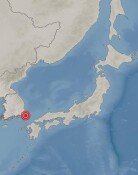Fear over pesticide-tainted eggs spread across Europe
Fear over pesticide-tainted eggs spread across Europe
Posted August. 09, 2017 07:14,
Updated August. 09, 2017 07:53
Fear over pesticide that first surfaced in the Netherlands and Belgium is spreading across Europe. The European Union said eggs found to contain pesticide Fipronil harmful to the human body is believed to have been circulating in Germany, followed by Sweden, Switzerland, France and the U.K., and urged people to use extracaution. There is a possibility that insecticide-contaminated eggs may have circulated beyond the seven countries.
In fact, eggs that contain a large volume of the toxic Fipronil has been discovered at a food processing plant in mid-western France, while the U.K. also judges that 21,000 insecticide-tainted eggs were imported from the Netherlands.
Fipronil is a highly toxic material that is used to exterminate harmful bugs including fleas and ticks, and is not allowed for use in humans. According to the World Health Organization, if people consume a large quantity of Fipronil, they can develop abnormal conditions in the kidney, liver and thyroid gland. Notably, the substance is even more lethal to children, sparking fears to escalate.
The U.K. daily Guardian reported that the origin of the incident is believed to be a pesticide supplier in Belgium. The company allegedly mixed substances that should not have been used in order to increase the effect of its pesticide, and circulated the mixture in the Netherlands. The Netherlands shut down 138 poultry farms, or one fifth of all farms in the country, while Belgium closed 57, or one fourth of all farms nationwide.
Germany, which imports 30 percent of its egg consumption from the Netherlands, is in a state of emergency. Contaminated eggs have reportedly spread to 12 provinces already.
Germany is expressing anger over the belated response by the Belgium government. According to Politico Europe, Belgium first sensed a significant level of risk as early as May 15 this year and resumed investigation in June, before setting alarm over the risk of pesticide-contaminated eggs through the emergency alert system to EU member states on July 20. Two days later, eggs containing Fipronil content were discovered at seven farms in the Netherlands for the first time.
On controversy over its slow response to the crisis, Belgium claimed, “We did not publicize our investigation to the public because Fipronil content did not exceed the EU standard at the time.” The German law enforcement authority has started Monday a formal probe regarding the distribution process of eggs.
ditto@donga.com
In fact, eggs that contain a large volume of the toxic Fipronil has been discovered at a food processing plant in mid-western France, while the U.K. also judges that 21,000 insecticide-tainted eggs were imported from the Netherlands.
Fipronil is a highly toxic material that is used to exterminate harmful bugs including fleas and ticks, and is not allowed for use in humans. According to the World Health Organization, if people consume a large quantity of Fipronil, they can develop abnormal conditions in the kidney, liver and thyroid gland. Notably, the substance is even more lethal to children, sparking fears to escalate.
The U.K. daily Guardian reported that the origin of the incident is believed to be a pesticide supplier in Belgium. The company allegedly mixed substances that should not have been used in order to increase the effect of its pesticide, and circulated the mixture in the Netherlands. The Netherlands shut down 138 poultry farms, or one fifth of all farms in the country, while Belgium closed 57, or one fourth of all farms nationwide.
Germany, which imports 30 percent of its egg consumption from the Netherlands, is in a state of emergency. Contaminated eggs have reportedly spread to 12 provinces already.
Germany is expressing anger over the belated response by the Belgium government. According to Politico Europe, Belgium first sensed a significant level of risk as early as May 15 this year and resumed investigation in June, before setting alarm over the risk of pesticide-contaminated eggs through the emergency alert system to EU member states on July 20. Two days later, eggs containing Fipronil content were discovered at seven farms in the Netherlands for the first time.
On controversy over its slow response to the crisis, Belgium claimed, “We did not publicize our investigation to the public because Fipronil content did not exceed the EU standard at the time.” The German law enforcement authority has started Monday a formal probe regarding the distribution process of eggs.
ditto@donga.com







